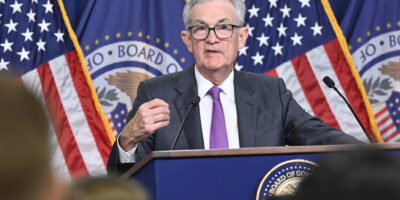The Sound Money Project was founded in January 2009 to conduct research and promote awareness about monetary stability and financial privacy. The project is comprised of leading academics and practitioners in money, banking, and macroeconomics. It offers regular commentary and in-depth analysis on monetary policy, alternative monetary systems, financial markets regulation, cryptocurrencies, and the history of monetary and macroeconomic thought. For the latest on sound money issues, subscribe to our working paper series and follow along on Twitter or Facebook.
Advisory Board: Steve H. Hanke, Jerry L. Jordan, Lawrence H. White
Director: William J. Luther
Senior Fellows: Nicolás Cachanosky, Gerald P. Dwyer, Joshua R. Hendrickson, Thomas L. Hogan, Gerald P. O’Driscoll, Jr., Alexander W. Salter
Fellows: J.P. Koning

“The whole point of expectations-responsive monetary policy is to remove the discretionary and technocratic elements from central banking. Disappointingly but unsurprisingly, the Fed is doing the opposite: doubling down on discretion and technocracy.” ~Alexander W. Salter
READ MORE
“The best we can do is recalibrate models when we get new data. But that’s like driving the car while looking out the rearview window…hardly ideal for knowing how to adjust your steering.” ~Alexander W. Salter
READ MORE
“Regardless of whether one thinks that the CPI should include interest rates and/or asset prices, it seems clear that consumers factor in these costs when evaluating the cost of living.” ~Joshua R. Hendrickson
READ MORE
“Market participants continue to expect three cuts this year — and that those cuts will begin in the first half of the year. But they have adjusted the odds.” ~William J. Luther
READ MORE
“By fueling an overall increase in demand, central banks can generate a sustained increase in the general level of prices — inflation. Central banks are the primary source of money creation, not firms.” ~Nicolás Cachanosky
READ MORE
” Fed watchers expect the Federal Open Market Committee will keep rates steady when they meet on March 19-20. In light of the CPI data, that’s a defensible move.” ~Alexander W. Salter
READ MORE
“So rather than starting to tighten policy in the fourth quarter of ‘21, as Powell described, the Fed was implicitly loosening policy through May of ‘22.” ~Thomas L. Hogan
READ MORE
“At most, large deficits impelled the Fed to support the market for government debt by purchasing more debt than it should have. The central bank, not the fiscal authorities, is the residual determiner of aggregate demand.” ~Alexander W. Salter
READ MORE
“Team Transitory’s narrative just doesn’t cohere. Whether we’re trying to explain the Great Inflation of the 1970s and early 1980s, or the inflation of the past two years, we need to rely on demand-side mechanisms.” ~Alexander W. Salter
READ MORE
“Microeconomic relative-price dynamics increasingly drive inflation measurements. That means the Fed should not be afraid to ease off the brakes.” ~Alexander W. Salter
READ MORE
“The delayed implementation of dollarization in Argentina presents challenges that could have been avoided had Milei honored his promise to abandon the peso straightaway.” ~Nicolás Cachanosky
READ MORE
“While not a groundbreaking revelation for any central bank, the lack of concern about the economic and institutional implications of monetizing financial obligations is cause for concern.” ~Nicolas Cachanosky
READ MORE250 Division Street | PO Box 1000
Great Barrington, MA 01230-1000
Press and other media outlets contact
888-528-1216
press@aier.org
This work is licensed under a
Creative Commons Attribution 4.0 International License,
except where copyright is otherwise reserved.
© 2021 American Institute for Economic Research
Privacy Policy
AIER is a 501(c)(3) Nonprofit
registered in the US under EIN: 04-2121305